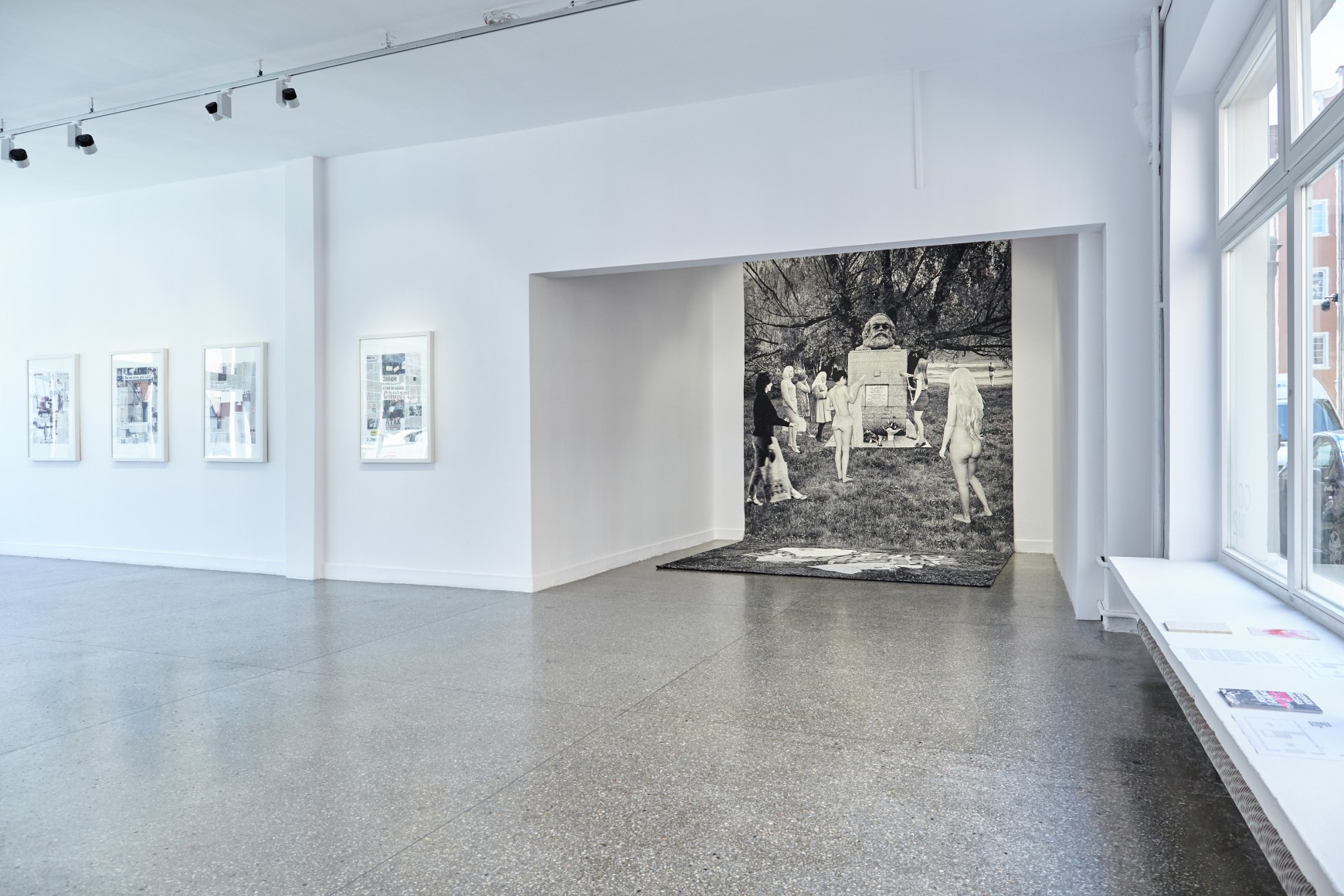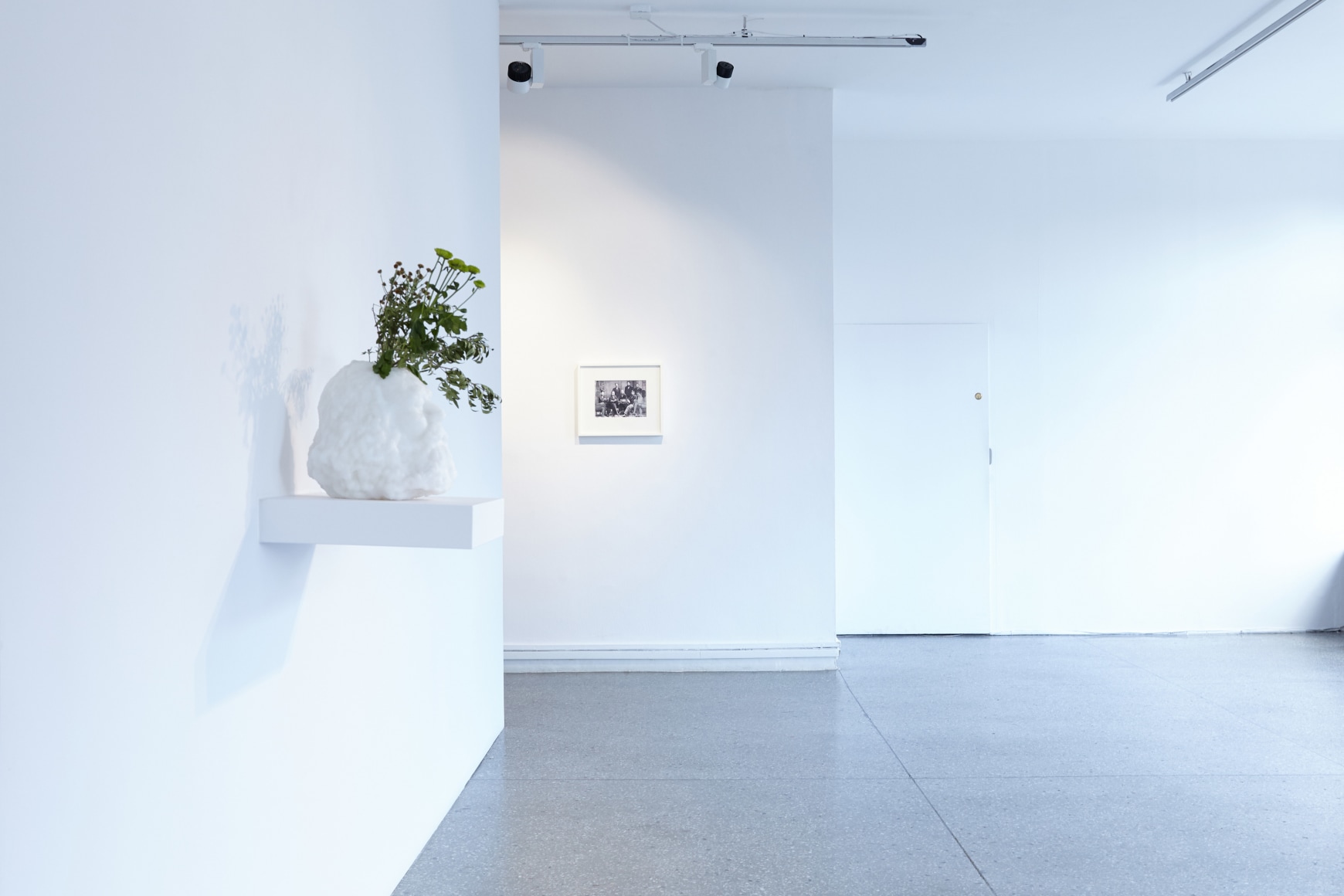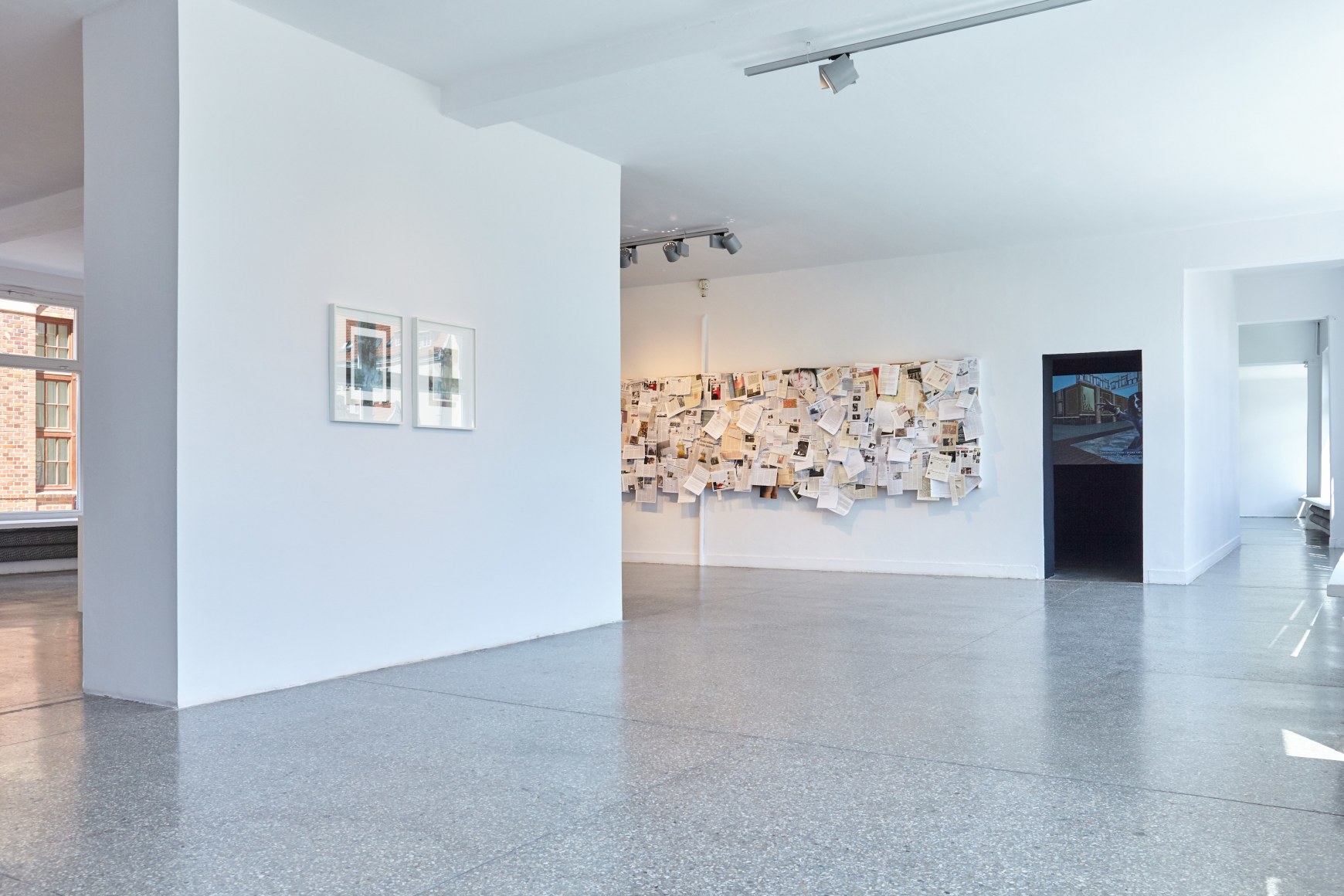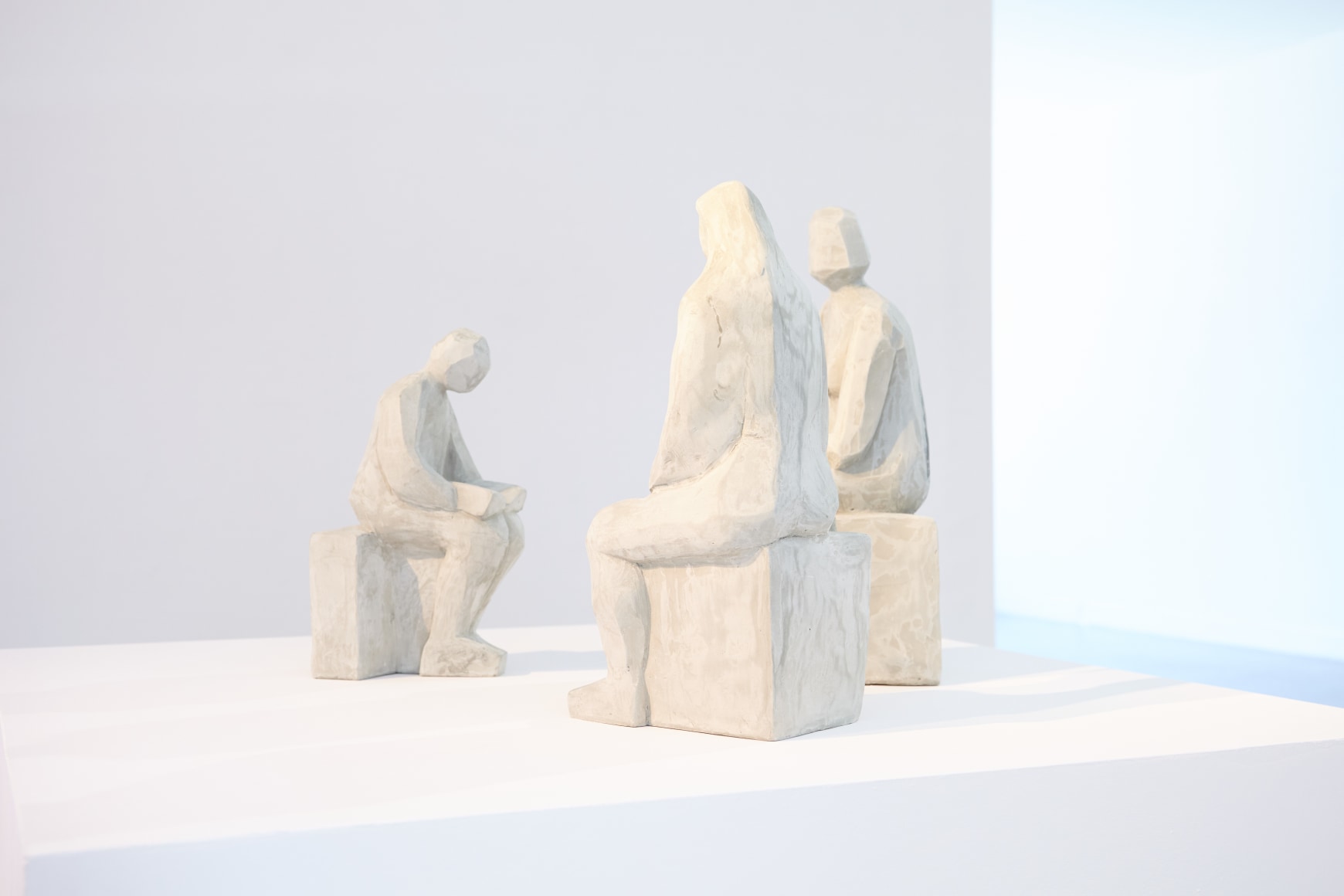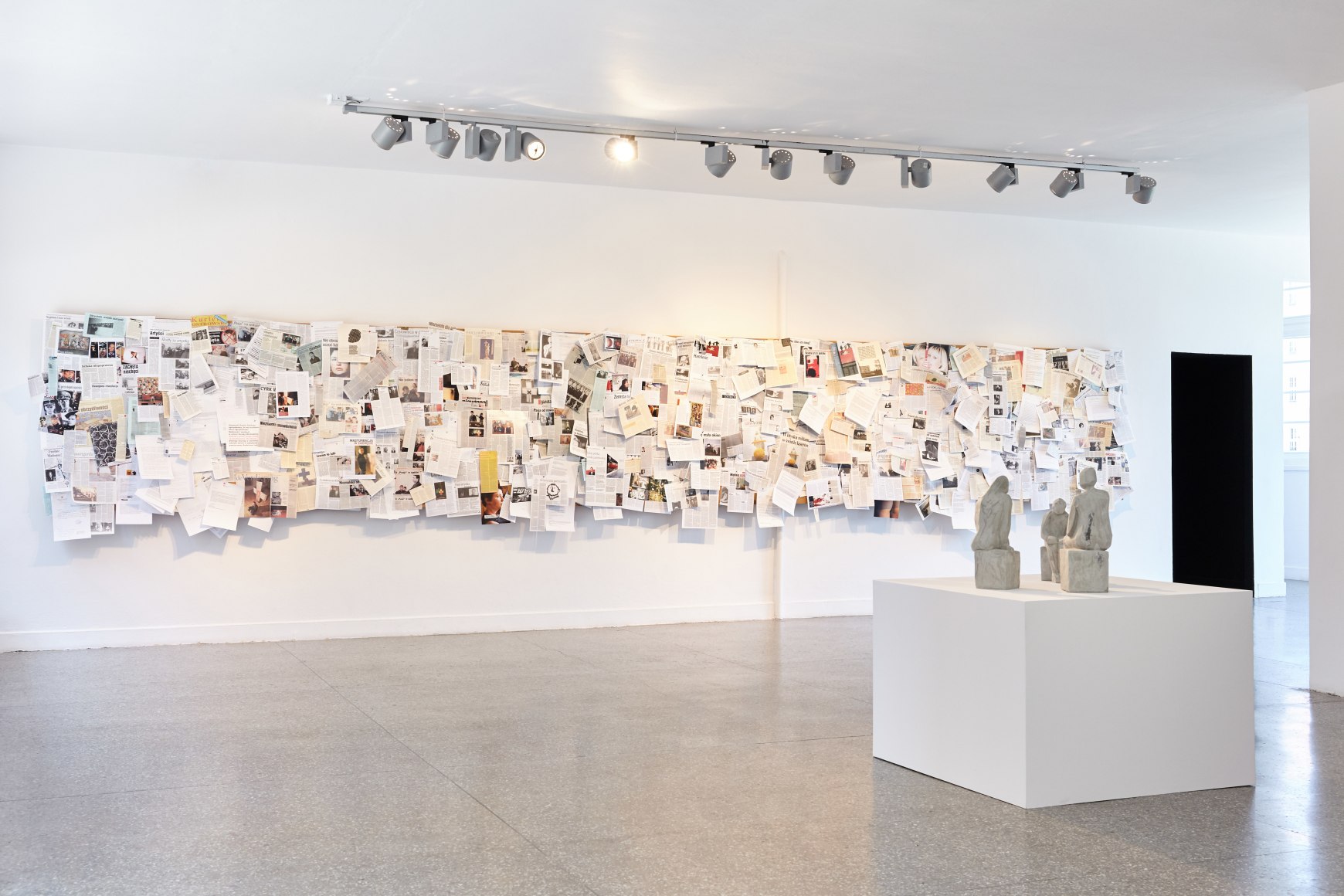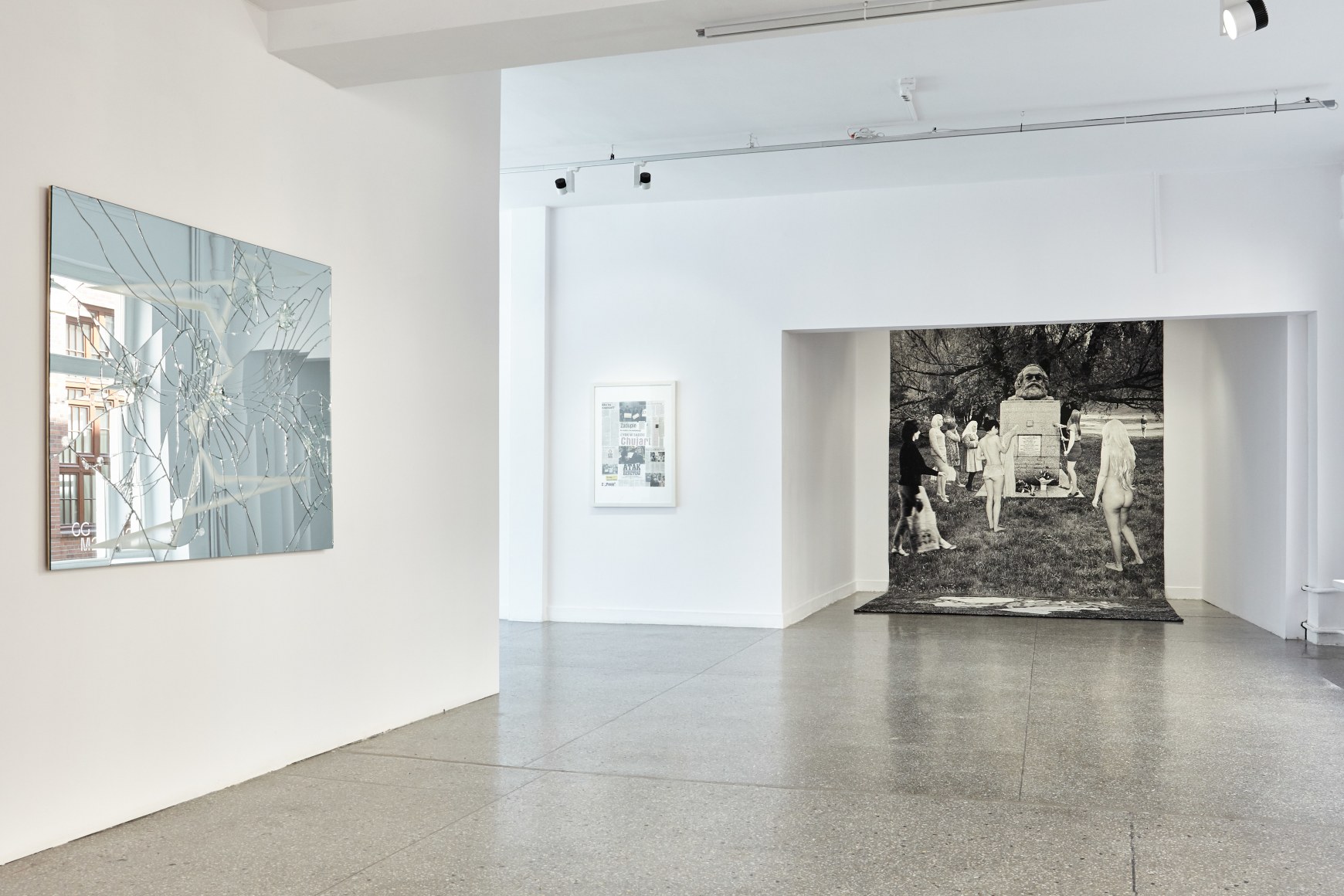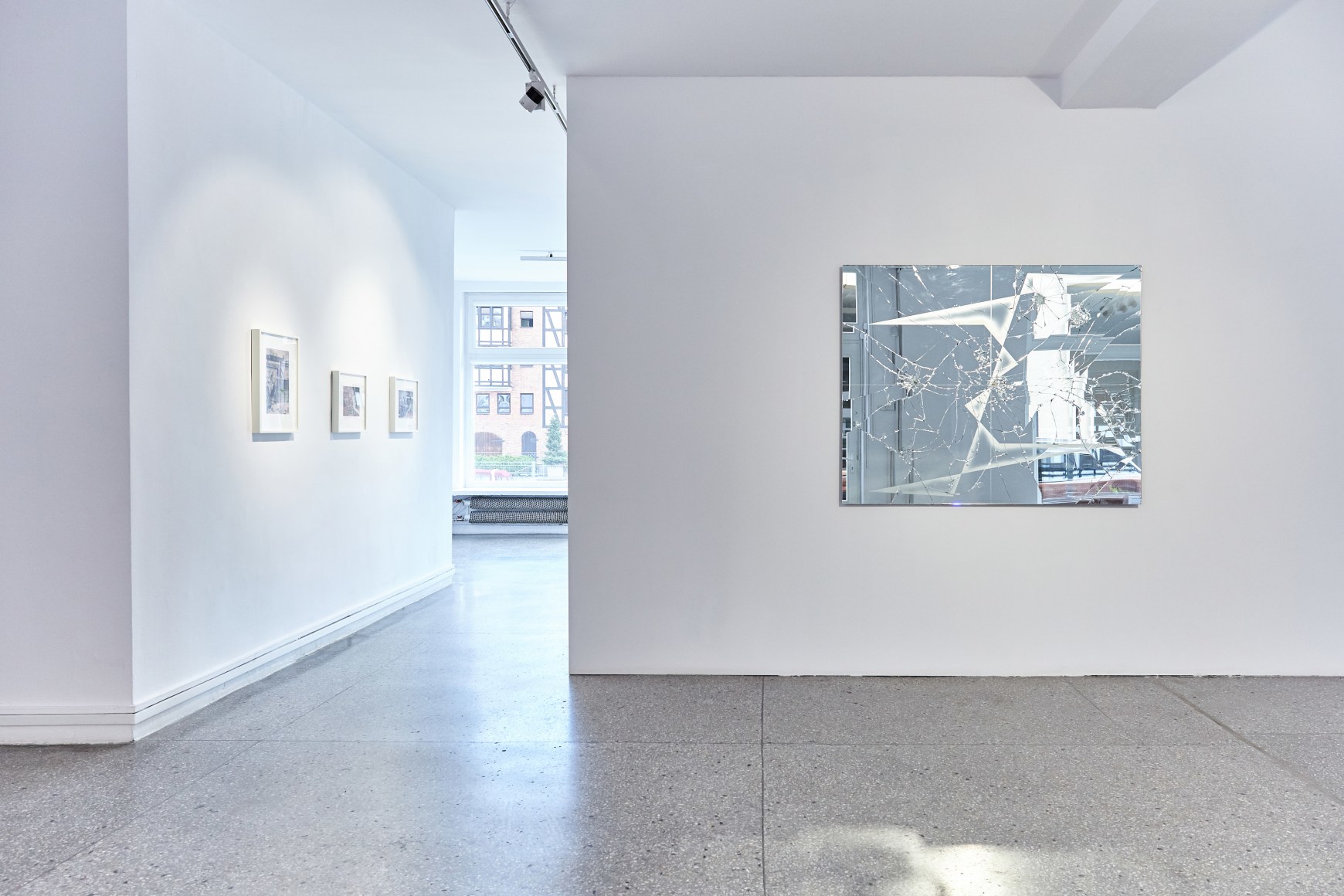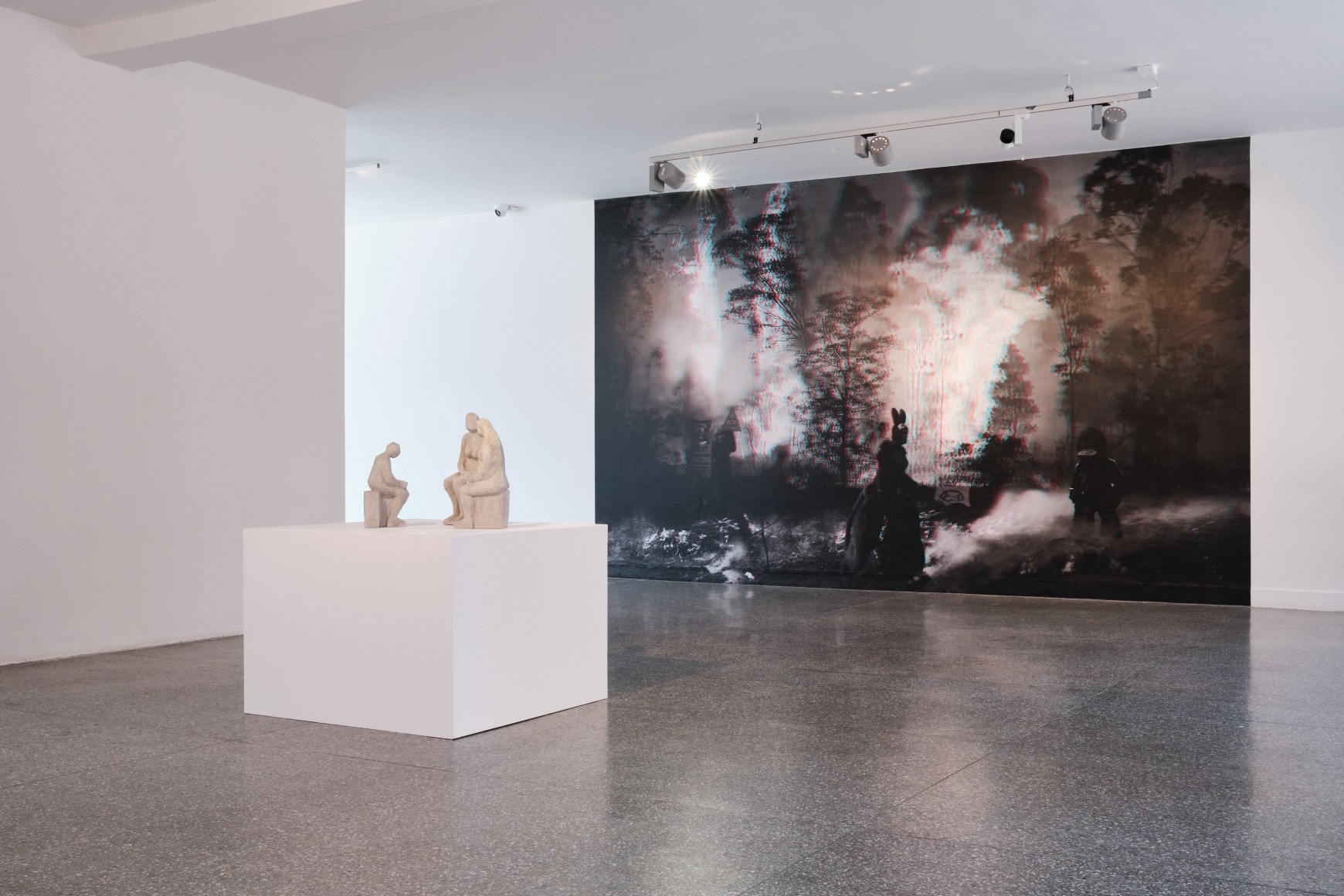Goshka Macuga’s exhibition, The Death of Marxism, presents series of artworks that are an effect of diverse forms of creative practice – artistic research, appropriations, and collages. It focuses on the theme of the kaleidoscopic complexity of historical and personal narratives of the past.
Macuga’s work combines antagonistic elements, often using the performative potential of irony that subverts both the authenticity of the document and customary narratives.
The exhibition’s title references one of the works in her exhibition that, resounds particularly timely when shown at the Gdańsk City Gallery in Gdańsk.
The Death of Marxism is a tapestry that brings to mind the grotesque landscape-animal and Wawel Castle arras tapestries, a symbol of Sarmatian imperial ambitions, while it further alludes to the archives of Miroslav Tichý, an eccentric outsider artist who worked in the small town of Kyjov in Czechoslovakia. From the 1950s onwards, Tichý devoted his time to compulsively voyeuring women in his home town, taking surreptitious photographs of their daily, intimate moments. The hundreds of his photographs are an archive of an invisible presence of history, construed as a fabric woven in patterns of significant places of a void that manifested itself through subconscious voyeuristic eroticism.
In collages using Tichy’s photographs, Macuga skilfully oscillates between fact and fiction. She successfully unseals the myth-making machine of putting history in order, and as a result frees up space for a kind of laughter at history. In her work, she places women from Tichý’s photographs around Marx’s tomb and replaces the inscription ‘workers of all lands unite’ with ‘women of all lands unite’, highlighting the absence of women from historical narratives, a frequently recurring theme in Macuga’s work. In this way, she also emphasizes solidarity with others written out of collective, selective memory.
It was precisely this mechanism of choice that allowed humans to control chaos and organize our reality – from prehistoric tribes to technological nomads. But a selectiveness that violently imposes a certain way of narrating history creates distortions. Such a revision, becomes a map of the festering points in historical narratives, an its particular limitations, is presented by another featured work ‘The Board’. This is a chronicle of censorship, without a beginning or end, which shows, on-and-off, the mechanisms of suspending or amplifying history, pointing to living gaps in the timeline.
The Death of Marxism is also an exhibition that taps into contemporary commentary about the end of the world that is with us since the beginning of the global crisis caused by the Covid-19 pandemic. An impending global catastrophe seems imminent, though we can hardly imagine it.
Marx predicted that Communism would be the final stage in the development of the historical process – and therefore its triumphant culmination. In Gdańsk, we have experienced both the beginning and end of this history, the rise of Communist power and its spectacular collapse. Here, the temporariness of great histories turns out to be inevitable, and the redistribution of power proceeds along a multi-directional course. Thanks to the heroic mobilization of a group of workers, including women workers, whose contribution to history is often neglected, oppressive Communism, which was originally meant as a deliverance for the working class, was, after several decades in power overthrown by that very class. A new, post-Cold War world order was a direct consequence, and liberty was again forced into old-new tracks of utopian hopes for a better tomorrow and replaced with fledgling democracy and techno-scientific capitalism. Thirty years later, Poland still experiences a post-communist ‘jetlag’, with the past mistaken in turns as nostalgia and painful trauma, and the future being nothing but an illusory set of projections – great, bombastic expectations.
The featured works by Goshka Macuga are based on this seductive symmetry of oppositions. They highlight the mechanisms of creating historical narratives, about their concentric circles, cycles, and inevitable repetitions, allowing us to get closer to the intertextures of the post-socialist tapestry of the present.
(Source)

